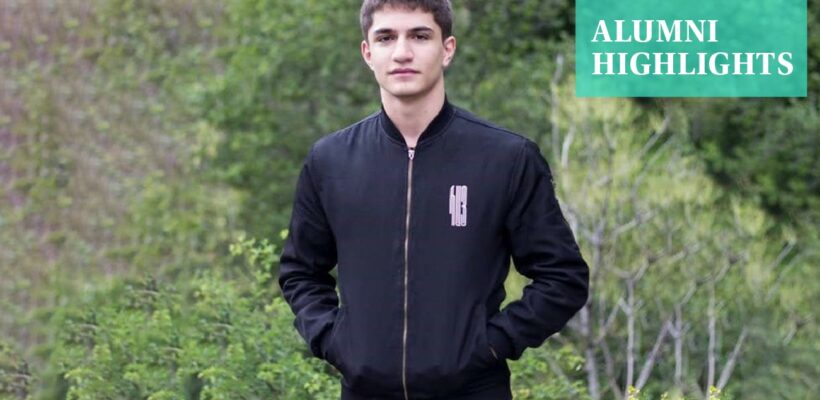
Grigor Tukharyan (BSES ‘22): A Step Into the World of Science
3 min readAmerican University of Armenia (AUA) recent alumnus Grigor Tukharyan (BSES ‘22) majored in engineering sciences at the Zaven and Sonia Akian College of Science and Engineering. As a student, Tukharyan collaborated with the Armenian Student Aerospace Team (ArmSAT) to develop an industrial caustic soda filtration system for Coca-Cola Hellenic Bottling Company Armenia. Later, as a junior researcher at Instigate Design CJSC, he worked on software-defined radios, field-programmable gate arrays, and high-level synthesis applications. Currently, he is studying at the Massachusetts Institute of Technology (MIT) for a master’s degree in Nuclear Science and Engineering with a focus on Nuclear Security and Policy, and nuclear reactors. In this interview, Tukharyan shared with us his plans to return to Armenia to work on the development of fast-neutron reactors, designed to burn long-term nuclear waste for sustainable use of radioactive fuel.
What influenced your decision to pursue an academic career in engineering sciences?
From an early age, I had a keen interest in science and spent a lot of time watching science shows and reading encyclopedias in an effort to discover more about the surrounding world.
My parents’ expertise in information technology indeed had an impact on my choice to pursue an academic career in engineering sciences. I also credit my teachers at the Anania Shirakatsy Lyceum for my strong background in mathematics and physics.
When it came to choosing a university after graduating from school, AUA was the only educational institution in Armenia that offered a Bachelor’s degree in Engineering Sciences in English. I believe that a strong educational background will enable me to discover solutions to the numerous challenges Armenia faces.
Why did you choose the Massachusetts Institute of Technology (MIT)? What perspectives or opportunities does it offer compared to other universities you have considered?
The advanced courses offered by MIT will be of immeasurable value for me as an engineer who intends to pursue a career in the broad and multidisciplinary field of nuclear engineering. The program will give me an opportunity to explore nuclear engineering from a different perspective and address issues that have prevented the development of the nuclear industry in Armenia. By becoming a successful professional, I want to serve as a role model of excellence in innovation for my country.
What role did AUA play in your professional advancement?
AUA’s contribution was substantial, since it provided a solid foundation for my engineering education and an opportunity to realize my dreams. I was able to interact with people who assisted me in many academic and professional endeavors.
Thanks to my experience co-founding ArmSAT, the only engineering club at AUA to date, I developed the leadership, project management, and communication skills necessary for collaboration with a wide range of individuals and groups to tackle complex issues.
Taking into account your career trajectory, what has been the most demanding challenge you have faced thus far?
Being an engineer requires you to be ready to work in a multidisciplinary setting that includes specialists from fields in which you may lack experience. When I first began working in Instigate Design CJSC, I was writing code for drones using Python Application Programming Interface (API). However, the project’s focus gradually expanded to include radio frequency communication, software-defined radios, semiconductor devices called field-programmable gate arrays, and high-level synthesis applications. Despite having no relevant prior expertise, I drew upon my diligence and love for self-education to do research in these areas for nearly two years.
How do you intend to apply your knowledge in Armenia with an M.A. in nuclear sciences?
Nowadays, energy requirements are becoming a concern, and there will soon be a great demand for qualified specialists who can apply their knowledge and skills to address the energy crisis. In that regard, the future of humanity will probably be highly dependent on green and sustainable energy sources, such as nuclear fission. Even though I would like to be on a team of experts developing such technologies, my primary intention after graduation is to work on the latest Generation IV fast-neutron reactors currently being developed worldwide.
What are your plans for the future? Do you have specific goals you want to accomplish?
After completing my Master’s degree, I intend to continue my studies by pursuing a Ph.D. at MIT to gain more experience and find networking opportunities that will help me achieve my goals in Armenia. In case Armenia is unable to develop a Fast-neutron reactor, I will make an effort to identify another issue to address.
